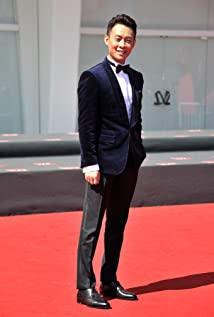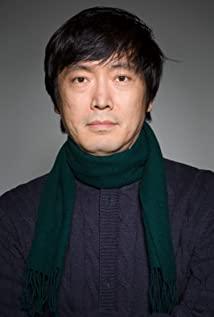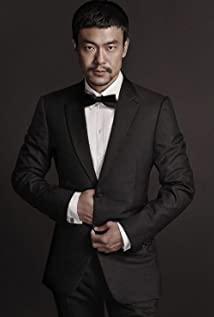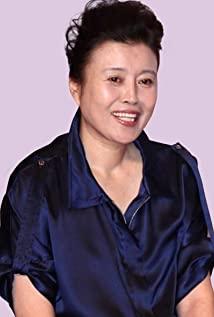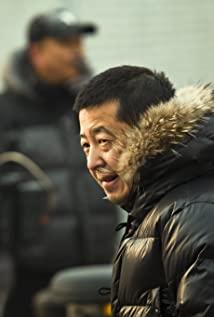Introduction: Zhao Tao has a temperament that completely matches the changing town, vulgar or elegant, like everyone living in this "big construction site of the times", with the desire to run, but also unable to escape the gravity of dust; Jia Zhangke stands behind the camera and uses the emotional entanglement of ordinary people to present the social emotions of the era of change, and to point out the truth of life for us.
Text/Su Huatian
Jia Zhangke's new film "Children of Jianghu" was unveiled at Cannes. This is also Jia Zhangke's fifth film to be selected for the main competition section of the Cannes Film Festival. After the premiere, the film has been praised as always, but unlike the past, the performance of starring Zhao Tao in this film has become a bigger surprise.
According to his own description, it is a "raging love story". But stories and love have a long history. The heroine's name is the same as Qiaoqiao in "Ren Xiaoyao" in 2002. The plot of Three Gorges and Xun Fu echoes "The Good Man in Three Gorges" in 2006. The three-stage time span is reminiscent of "Old Man in Mountains and Rivers" in 2015. . "Section Chief Universe" has been formed. These three works are the spiritual entrance to understanding "Children of Jianghu".
Zhao Tao, the former dance teacher, is a star in the "Section Chief Universe". From "Platform" to "Children of Jianghu", 18 years have passed, and she has become a must for Jia Zhangke's prescription. Some people say that Jia Zhangke made her a success, and let her go from a dance teacher to a professional actress; others say that Jia covered her, and his group portrait narrative and video style could not make the stage lights focus on her alone. But in any case, Zhao Tao defines Jia Zhangke's images in a unique way.
She is the wild model Qiaoqiao who is looking for freedom in "Ren Xiaoyao", Shen Hong who is looking for her husband thousands of miles in "The Good Man in Three Gorges", and Tao who is waiting alone in "The Old Man of Mountains and Rivers". She has a temperament that perfectly matches the changing Chinese town. In "Ren Xiaoyao", she supported the shawl with her hands to block the sun, and passed the bungalow to be demolished and the construction site; With a gloomy expression, she kept drinking water; in "Old Man in the Mountains and Rivers", she danced disco, walked between two admirers, and set off fireworks by the empty river.
The urbanization process in China since the 1990s has turned the whole society into a large construction site full of opportunities, aspirations and absurdities. The difficulties and choices of ordinary people in the transformation have become the constant theme of Jia Zhangke's films. In "Ren Xiaoyao", the former Xiaowu decided to enter the "financial world" and loan usury to his little brother; in "The Good Man of Three Gorges", the laborer Han Sanming was dragged and dragged at the scene of the low-level magic show, the other party said The fee is to protect the "intellectual copyright"; on the TV, there are news broadcasts about bombings and robbery cases... People's hearts are not broken, interpersonal relationships are reshuffled, and the value order is scattered.
But in Jia's films, these fissures are not presented directly, but are refracted through emotions. Love has become the way people try to connect when the order is falling apart, but marriage and family cannot give the ideal answer either. This is also the reason why Zhao Tao can always be the heroine of Jia's movies. She is an ordinary person without a celebrity appearance, she can be anyone, even a speck of dust. She will not make the movie her, but just become a beam of light in the movie, always looking for love, separation and deception, she is looking for lovers and husbands, and she is also looking for herself.
She wants to find an exit. In "Ren Xiaoyao", she dyed her hair blue, trying to hide herself, she painted butterflies on the mirror in the room, and explained the meaning of Zhuangzi's "Xiaoyaoyou" as "do whatever you want"; ", she leaves Shanxi and walks on the banks of the Yangtze River, looking for her husband who has not returned home for two years. In a crumbling reality city, this middle-aged woman who works in nursing tries to stitch up her broken marriage life.
She went to take a boat and passed a boy singing a love song. He sang "Rice Loves Rice". The sweet love in popular songs has nothing to do with her. She went to a friend's house and saw rows of watches in the room. The time changed for everyone, but some chose to stay put. Other times, they were changed by policy and some items were left in place.
She chose to refuse. In "Ren Xiaoyao", she wanted to escape the control of the gang leader Qiao San and go to be with that Xiao Ji. In the vanity car, she was about to rush out of the car door, but was stopped by Qiao San, she got up again, and so on. In "The Good Man in Three Gorges", she and her husband are walking by the river, and several couples of young people are dancing on the Tower Bridge. Her husband asked her to lean over and the two danced hard, but she quickly realized the falsity of this relationship and decided to divorce.
In real life, Zhao Tao is always looking for it. It is said that she was once annoyed because her performance was not recognized, but Jia Zhangke objected to her to study professional performance skills. After making up her mind to transition from dance school to becoming a professional actor, this pursuit continues, even after she won the Best Actress at the 2012 Italian Asti Film Festival and the Italian Film Awards for her starring role in "I Am Li".
Jia Zhangke, Zhao Tao's husband in the real world, and the former Fenyang boy, looked at his hometown with affection and playfulness at the same time. In his films, the world is Fenyang, and Fenyang is the world. Connecting the two is the imagination and desire of those characters.
For him, Zhao Tao is both the protagonist and just an image. He let Zhao Tao grow up in the urban construction site of Fenyang, placed her in the Fengjie area that was about to be submerged, and let her emotions tear apart from the chaotic rivers and lakes. In "Ren Xiaoyao", the punk leader Qiao San accidentally dropped the gun, and the young men of her husband Guo Bin in "The Good Man in Three Gorges", including the "little brother" who imitated Chow Yun-fat, all imply a world of rivers and lakes. There may be morality in this world, but it is also hypocritical, sometimes mixed with the will of the state.
Jia Zhangke wants to present this ambiguous arena. He smirked occasionally, or frowned, looking for an opportunity. In the process of directing "The Good Man in Three Gorges", he felt that Zhao Tao's emotions were not as low as the performance needed, so he pretended to be a villain, scolded her during filming, and alienated her in order to make her emotionally more painful.
He also deliberately brushed her past those things outside of emotion, north of making sense. In "The Three Gorges Good Man", a long-abandoned factory, a man who lost his right shoulder and a woman holding a bicycle stood there, like a still life, his clothes were submerged in the color of the factory. At night, she was standing next to the dancing crowd, and two men who looked like officials entered the camera, chatting about the 240 million bridge project; on the cruise ship, the TV was on, playing about the Three Gorges Project and the Fourth Generation. The leader's propaganda film, the grand voice of the country's will became the background, she just decided to divorce, sitting quietly, drinking water from a water bottle, her eyes are full of thoughts.
For Jia Zhangke, Zhao Tao represents love, and he is responsible for leading love to a deeper meaning. For example, Zhang Jinsheng, a coal miner played by Zhang Yi, is determined to take revenge on Liang Zi in "Old Man in Mountains and Rivers", when Tao finds explosives in his trunk. Zhang Jinsheng was dissuaded, he placed explosives in the thawing ice, and Tao detonated it.
The plot of impulsive revenge may be a bit blunt, but the design of the explosives is very creative: the frozen ice bursts, and the mountains and rivers vibrate violently. Not long ago, the three of them were standing by the river, watching the fireworks bloom in the low sky during the day.
When the ice layer was blasted away, her body trembled. A similar scene also appeared in "The Three Gorges". She went to the demolition office where her husband worked and bandaged the wound of a young man with a head injury. The circuit on the wall next to her suddenly malfunctioned, sending out sparks. Her body shrank like a keen animal.
Jia Zhangke wrote in his second film diary "Jia Xiang II": "I live in an era full of unstoppable changes. Pick up the camera to shoot this subversive change, or my destiny." He The characters filmed started from a small town in Shanxi, reached the Yangtze River Basin, Inner Mongolia and Xinjiang, Shanghai and Beijing, and even went to Australia. Jia Zhangke thus transcended the geographical limitations of Fenyang, and his video world became the epitome of inland China. However, in the changing social landscape, the people in the film eventually become people who are looking for old friends and can only watch the drastic changes in the mountains and rivers. They not only show the frustration and confusion of being unable to adapt to the rapid changes in society, but also show that they surpass these changes. Some perseverance, an affirmation rooted in simple life.
Except for the old songs from Hong Kong and Taiwan in the 1980s, it is hard to say that this kind of change was not accomplished by Zhao Tao. She often jumped off the high-speed train of the times and returned to a quiet and realistic life. Just as in "Old Man in Mountains and Rivers", a snow came as scheduled, GoWest's singing sounded again, she danced a familiar dance, time seemed to have not changed, and she also became a part of the mountains and rivers.
But in "Children of Jianghu", she completed self-transcendence. When the morality of the male-dominated rivers and lakes collapses, should women find a new value attribution, or should they be the ones who take full responsibility? Zhao Tao chose the latter. She's resurrected from the previous Jia films and regrowns herself as a new, brave, and faithful person. In the past, she seemed to be always looking for a home, and now she is her own home. The British BBC published a film review article on May 12, arguing that Zhao Tao "miraculously responded to the challenge from performance, and in a very subtle way, made the role of Qiaoqiao, in the exhaustion of the years, also presented in It gets tougher and tougher over time."
Counting from "Platform", 18 years have passed in a blink of an eye. In the world of group portraits presented by Jia Zhangke, Zhao Tao was once every one of us, with the desire to run and the gravity of dust. However, after a long period of growth, she finally bloomed with strong colors. For both her and Jia Zhangke, this is a new beginning.
(This article has been published in Mars Laboratory . Welcome to the public account "New Knowledge" to learn more exciting content⬇️)
View more about Ash Is Purest White reviews







